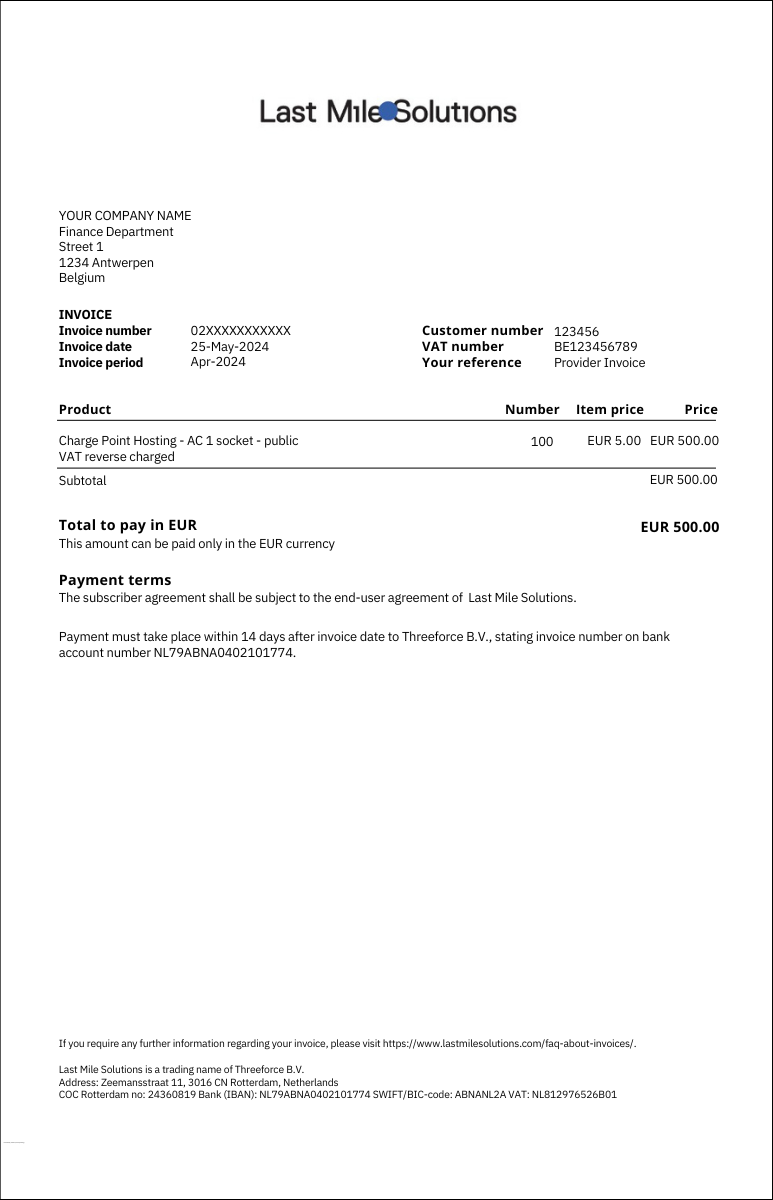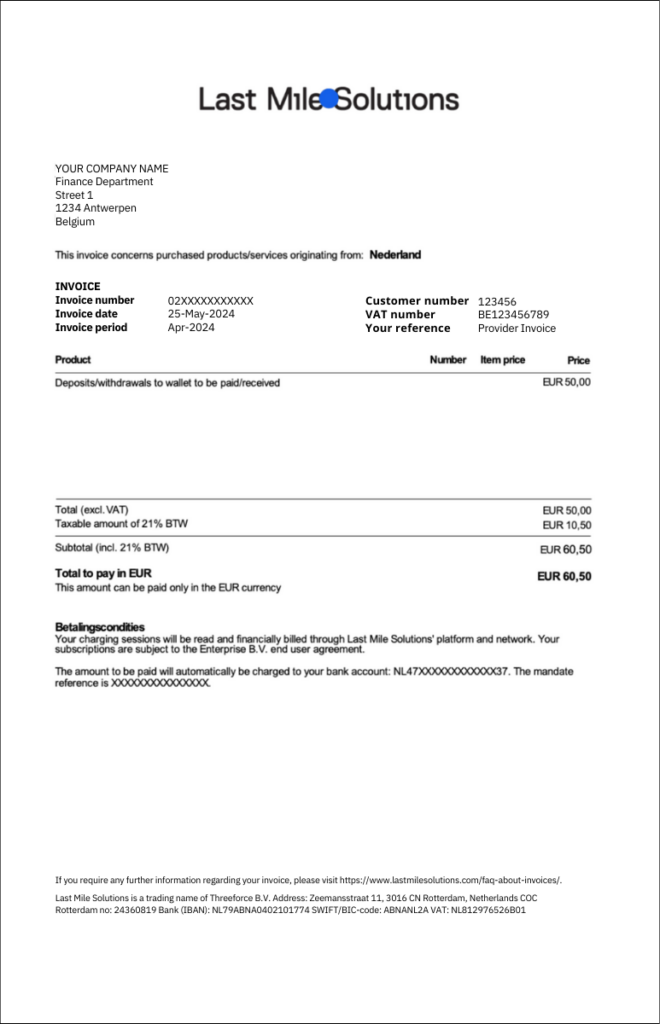Provider cost invoices are issued for charge point hosting on the EVC-net platform to CPOs, and charge card wallet to MSPs.
Hosting Products (CPO)
When hosting products are set up as “provider pays,” CPO will receive a provider cost invoice.
Alternatively, if the hosting is resold by the provider to the customer, the product is set up as “customer pays.” In this case, the customer attached to the charge point as the payer subscription will be invoiced and receive a customer cost invoice for the hosting product, and CPO receives provider self-bill for the margin.
For more information on setting up a hosting product, please see here.
Key points to note:
- Provider cost invoices are issued for charge point hosting or wallet credit
- Recurring costs for additional products (i.e. ECQ app, Fleet roles, etc.) are issued via a customer cost invoice to the provider
- If no customer is attached as payer charge transaction on a charge card, provider will be invoiced for the costs incurred, via provider cost invoice
- Provider invoice number always starts with “02”
Invoice Flow

Invoice Example

Wallet Credit (MSP)
As an MSP, you can offer charge cards with prepaid credit for end-users. These end-users will not receive invoices, as they pay for their charging using the credit loaded on their charge card. When the credit is depleted, the MSP can top up the card with new credit. Only the provider (MSP) can top up the credit, and this will be reflected on the provider’s cost invoice. Note that a wallet cannot be used at roaming charge points.
Key points to note:
- Wallet invoice number always starts with “02”
- Provider always pays for the topped-up credit
- Provider invoices the customer outside of EVC-net
- Wallet cannot be used on roaming stations
- Invoice for wallet top up does not include card or customer details
- Learn how to correctly set up a wallet here
Invoice Flow

Invoice Example

